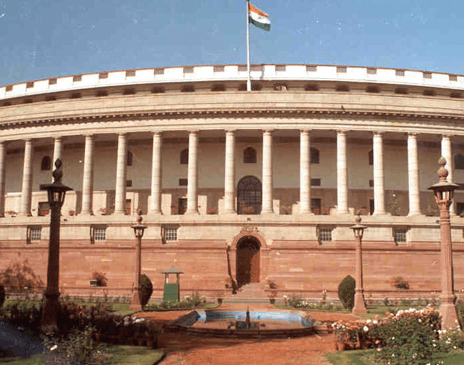Lok Sabha passes Fugitive Economic Offenders Bill, 2018
Lok Sabha has passed Fugitive Economic Offenders Bill, 2018 that aims to curb practice of evading criminal prosecution by economic offenders fleeing from country to evade clutches Indian law by remaining outside jurisdiction of Indian courts.. The bill will replace an ordinance promulgated by President in April 2018.
Key Features of Bill
Fugitive economic offender (FEO): It has been defined as person against whom an arrest warrant has been issued for committing an offence listed in schedule (enlisted in the this law) by any court in India, but he leaves or has left India to avoid criminal prosecution or refuses to return to India to face criminal prosecution. It is applicable in cases where total value involved in such economic offences is Rs.100 crore or more.
Special Court: It establishes Special Court under the Prevention of Money-laundering Act (PMLA), 2002 to declare a person as FEO. The court will appoint ‘administrator’ to oversee confiscated property. It will be responsible for disposing of confiscated property and t property will be used to satisfy creditors’ claims.
Attachment of property: It empowers director or deputy director (appointed under Prevention of Money-Laundering Act, 2002) to attach any property mentioned in application with permission of special court. These properties can be attached provisionally without the prior permission of the special court for 30 days. The attachment will continue for 180 days, unless it is extended by special court. If at the conclusion of proceedings, person is not found to be FEO, his properties will be released.
Bar on filing or defending civil claims: The bill allows any civil court or tribunal to disallow person declared FEO, from filing or defending any civil claim. Further, any company or limited liability partnership where FEO is majority shareholder, then promoter, or a key managerial person (such as MD or CEO) will also be barred from filing or defending civil claims.
Powers of director: The director or deputy director will have powers vested of civil court. These powers include entering a place on the belief that individual is FEO and directing searching of building or seizing documents.
Appeal: Under this law, appeals against orders of special court will lie before High Court.
Background
There have been several instances of economic offenders (eg Vijay Mallya and Nirav Modi) fleeing country to evade clutches Indian law to remain outside jurisdiction of Indian courts. The absence of such offenders from Indian courts has several deleterious consequences. It hampers investigation in criminal cases, wastes precious time of courts of law, undermines rule of law in India.
Further, most such cases of economic offences involve non-repayment of bank loans thereby worsening financial health of banking sector. Moreover, existing non-coherent civil and criminal provisions in law are not entirely adequate to deal with severity of problem. This bill will provide effective, expeditious and constitutionally permissible deterrent legal teeth to enforcing agencies to ensure that such actions of FEO are curbed.
Month: Current Affairs - July, 2018
No Comments
Leave a Reply
You must be logged in to post a comment.



Shakthi
July 20, 2018 at 10:39 pmGood, Lucid briefing of the Bill. Looking forward for such summaries.